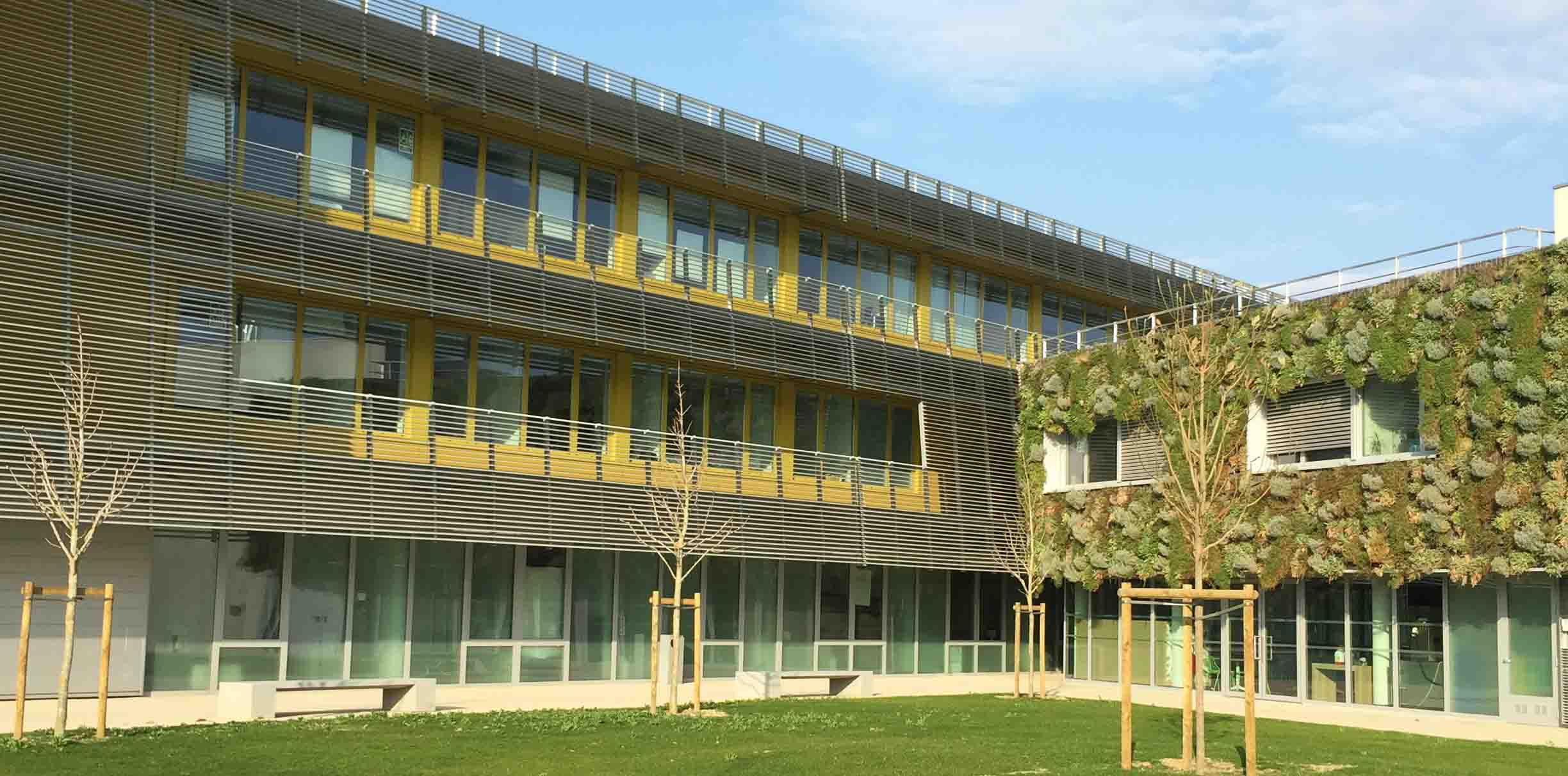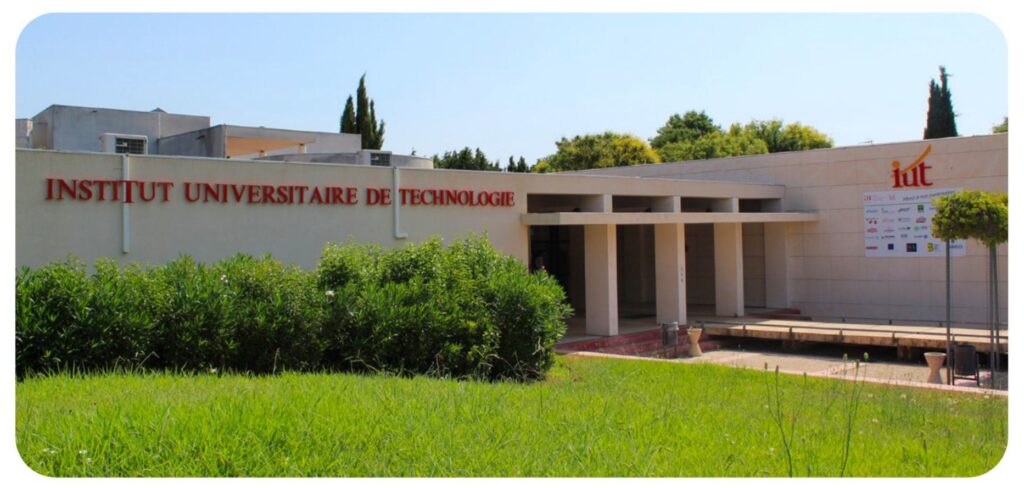The Jean-Henri Fabre Campus
History of the establishment of Avignon University at Agroparc
2006 saw the opening of a new building: theInstitute of Agrosciences, Environment and Health (AgES)at Agroparc, not far from the Centre for Education and Research in Informatics (CERI) and theIUTthe other two components of the university present on this campus. The geographical location of the Avignon Regional Agri-Food Technopole means that the university's links with the socio-economic network are firmly rooted in reality.

Research and teaching at the heart of the concerns
Agroparc, a place of interactive experimentation, encourages synergies between the student world, research and companies, thus promoting the dissemination of knowledge. In addition to the specific agri-food courses, several high-level courses are offered in marketing, logistics, distribution, IT, accounting/management, mechanics and electrical engineering.
With nearly 3,000 students and more than 400 teacher-researchers, this site is a formidable reservoir of grey matter. All levels of diplomas are represented, from the CAP to the Doctorate, in a large number of fields. In September 2003, this teaching and research centre received recognition from the Ministry of National Education, Higher Education and Research, jointly with the Ministry of Agriculture, through a "PFT" (Plate-Forme Technologique) label.
The main areas of technical specialisation are linked to all the R&D activities of the companies based on the campus, the INRAE and the 8 Science, Technology and Health research laboratories, which are based on Avignon Université's key areas of identity. Whether through Avignon Université, its Jean-Henri Fabre Campus with the Agrosciences, Environment and Health Institute (AgES), the Computer Science Teaching and Research Centre (CERI), the Avignon IUT or the Agricultural High School, all the skills are likely to be acquired at Agroparc.
With the support of the TERSYS federative research structure Avignon University, technology transfer centres in the food industry and the Terralia competitiveness cluster, this centre of excellence combines the human qualities and logistical capabilities needed to boost the spread of innovation within training courses and the professional integration of young people and adults.
The Institute of Agrosciences, Environment and Health (AgES)
The Institute of Agrosciences, Environment and Health (AgES) is part of Avignon University and offers a range of courses from Bachelor's degrees (Bac +3) to Doctorates (Bac +8). It has 126 teaching and research staff, 61 administrative and support staff and more than 2,500 students.
- Biology
- Chemistry
- Hydrogeology
- Mathematics
- Physics
- STAPS
The institute comprises four Joint Research Units (UMR), two Proprietary Research Units (UPR), one Proprietary Innovation Research Unit (UPRI) and one Support and Research Unit (UAR).
4 Joint Research Units (UMR) :
- Mediterranean Institute of Biodiversity and Ecology (IMBE)
- QUALISUD - An integrated approach to quality food production
- Mediterranean Environment and Agrohydrosystem Modelling (EMMAH)
- HYDRO team
- PHYSICAL team
- Safety and Quality of Plant Products (SQPOV)
- QuAlim team - Quality processed plants for a healthy diet
- SporAlim team - Spore-forming bacteria in the food chain
- Team GREEN - Eco-extraction of natural products
2 Own Research Units (UPR) :
1 Own Innovation Research Unit (UPRI) :
- PSII - Plant science, interactions and innovation
- SAFE - Bioactive Amphiphilic Systems and Eco-compatible Formulations
- S2CB - Synthesis and Bio-organic Colloidal Systems
1 Support and Research Unit (UAR) :
The Centre for Education and Research in Computer Science (CERI)
The Centre for Education and Research in Computer Science (CERI) brings together in the same building and under a common structure all of Avignon Université's computer science courses (Bachelor's, Master's, Doctorate) and the Avignon Computing Laboratory (LIA)This close proximity means that the LIA lecturers involved in each course are in constant contact with their students, providing them with optimum supervision.
Avignon University Institute of Technology (IUT)
With 450 companies, Agroparc is an economic lung for the Greater Avignon area.
Covering an area of 200 ha, Agroparc houses :
- 5000 students
- 130,000 m² of premises for professional use
- 50 socio-professional organisations
- 6 research organisations
- 12 training organisations
- An incubator of 136 companies

Since its creation in 1990, Avignon University's Institut Universitaire de Technologie (IUT) has built up a coherent, responsive training system tailored to the employment needs of the various economic sectors.
You will find the link to the Avignon IUT website. https://iut.univ-avignon.fr/
The close links forged with companies and professional circles have enabled 4 BUT specialities to be developed.
Opting for a course at the IUT today means preparing your career plan and giving yourself the means to exceed that goal. With a Bac +3 (BUT), professional integration corresponds to the expectations of the job market.
Updated on 9 September 2025